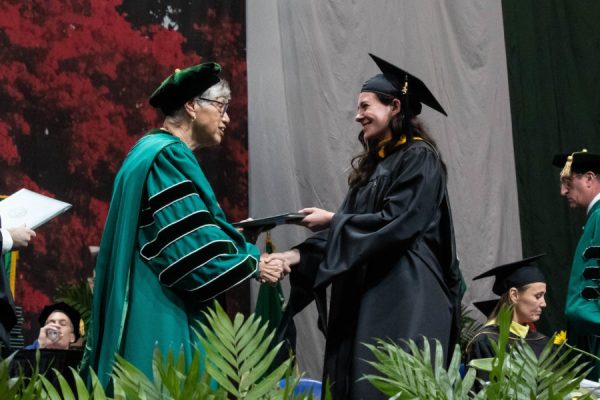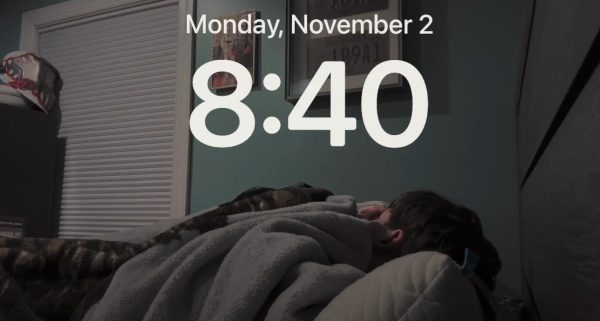SRA One Year Later: Impact on academic programs
March 6, 2018
The Wood Word examined the items listed in the SRA report to see what changes have taken place in the last year. This first article of a three-part series focuses on the academic programs included in the report.
It’s been over one year since the release of the final Strategic Resource Allocation (SRA) report.
Marywood President Sr. Mary Persico, IHM, Ed.D, released the final report in the fall of 2016 after committees analyzed Marywood’s programs. The report included changes to academic programs and other areas of the university.
The SRA process began in the fall of 2015 under previous Marywood President Sr. Anne Munley, IHM, Ph.D. and analyzed the amount of resources Marywood allocated to different programs to reduce the university’s spending.
Persico arrived at Marywood while the process was ongoing.
Overall, Persico said the changes made from the SRA process have been positive.
“I think that many people still regret that we even had to have an SRA report, but having said that, I think various departments on campus and the people in general have moved on from it,” Persico said at the end of the fall 2017 semester.
She said there have been many positive aspects over the past year academically, financially and in student life.
According to Persico, the SRA process is a good exercise for universities, but shouldn’t be done at a time of low morale and when the “crux of the matter is finance.”
Previous members of Marywood’s administration distributed a readiness survey in the fall of 2015 to faculty and staff, which found the campus was “moderately prepared” for the SRA process.
“I think this [the SRA process] is more an exercise that looks at our programs and tries to make the university better rather than look at programs to see how to cut costs,” Persico said.
The Wood Word examined the academic programs selected to be phased out, programs “earmarked for transformation,” placed in abeyance or placed in the fifth quintile as candidates for possible phase out.
College of Arts and Sciences
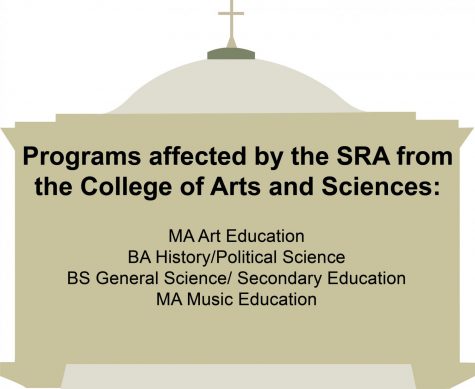
According to Dean of College of Arts and Sciences Dr. Fran Zauhar, the MA in Art Education, BA in History/Political Science and MA in Music Education have been phased out as recommended by the SRA report.
The BA in Sociology program, which was also designated to be phased out, remains as a program, Zauhar said.
Additionally, the BS in General Science/Secondary Education program has been phased out as recommended, but Zauhar said there is a secondary education certificate that remains in place.
The SRA report listed the BA in Art Education and the BA in Spanish Education programs in the “placed in abeyance” category. The BA in Art Education is currently in abeyance, but the BA in Spanish Education remains as an active program, according to Zauhar.
Three programs placed in the earmarked for transformation category include the BA in English Secondary Education, BA in History Secondary Education and BS in Mathematics Secondary Education. These programs are currently under discussion for potential changes, Zauhar said.
She added the science curriculum is under review and there are plans for curriculum proposals for programs such as BS in Biology (Pre-Chiropractic), BS in Medical Laboratory Science, BS in Environmental Science and BS in Biotechnology, which were all placed in the earmarked for transformation category. Zauhar said all these programs will continue to be offered.
In the College of Arts and Sciences, programs placed in Quintile 5 of the SRA report as candidates for possible phase outs included the MFA in Visual Art 2D/3D, BFA in Studio Art 3D, BFA/MA in Studio Art 2D, BS in Mathematics/Secondary Education, BS in Biology/Secondary Education, BS in Biology (Pre-Chiropractic) and BA in Arts Administration programs, but according to Zauhar, there are no plans to phase out any of these listed programs.
However, one program, the BA History/Political Science (Pre-Law) track has been phased out and replaced by History/Pre-Law, she said.
College of Health and Human Services
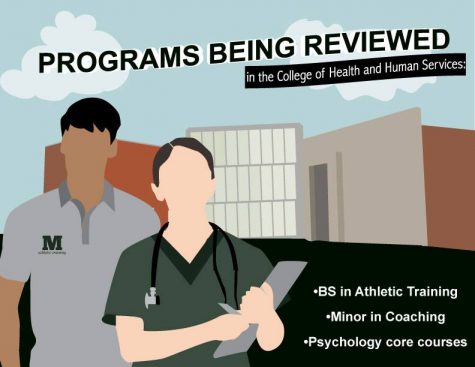
The SRA report listed the BS in Health and Physical Education program in the “placed in abeyance” section of the SRA report. According to Dr. Mark Rodgers, dean of the College of Health and Human Services, the program will be placed in abeyance with the last students being “taught out” and graduating in May 2018.
In the transformation category, one of the programs from the College of Health and Human Services included the BS in Athletic Training. Rodgers said the athletic training field will soon require students to have a master of science degree and sit for the National Licensing Board. He added that the program is being developed into a five-year program for students to receive a MS in Athletic Training. He said this curriculum is under review and if it is approved, the first class of students will be admitted for the fall of 2018.
Another program placed in the transformation category was the BS in Exercise Science. Rodgers said there are discussions happening between the exercise science faculty and the nutrition faculty to emphasize sports nutrition, but these discussions are in the preliminary stages.
According to Rodgers, the psychology core courses listed under Quintile 5 as candidates for possible phase out are under review with the study of the core curriculum.
The MS in Nursing Administration program, which was placed in Quintile 5, was voluntarily withdrawn and officially closed in the 2011 to 2012 academic year with the last student graduating from the program in May 2012. Rodgers said the nursing program has begun conversations to re-open a Masters in Nurse Education program, which will be discussed in more detail in the spring of 2018.
According to Rodgers, the minor in coaching, also placed in Quintile 5, is being considered for re-design or removal by the athletic training program. He said a decision will be made by the end of the spring 2018 semester.
College of Professional Studies
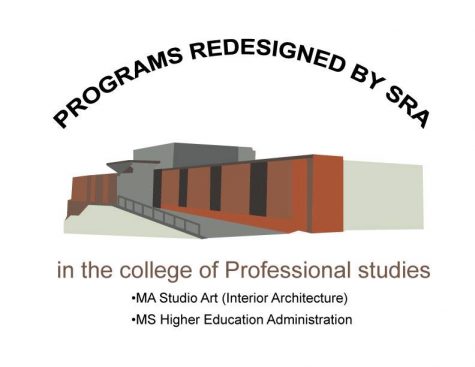
In the College of Professional Studies, the MA Studio Art (Interior Architecture) program was placed in Quintile 5 of the SRA report. According to Dean of the College of Professional Studies James Sullivan, the program has been redesigned after being placed in abeyance for the 2017 to 2018 academic year. Sullivan added the program will be launched for the 2018 to 2019 academic year as a Master of Interior Architecture program.
Additionally, the minor in interior architecture was placed in Quintile 5 as a candidate for possible phase out. Sullivan said this program has not been phased out.
The BBA in Business Information Technology program, placed in Quintile 5, was phased out as per recommendation from the report, Sullivan said.
The MS Higher Ed Admin program was labeled “earmarked for transformation.” Marywood has hired a full-time faculty member and now offers all courses online, according to Sullivan.
Follow The Wood Word for more information on the impacts of the SRA Report in the second installment of SRA One Year Later.
Brooke Williams contributed to this article.
Contact the writer: [email protected]
Twitter: @RLookerTWW











